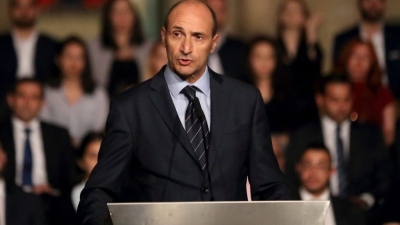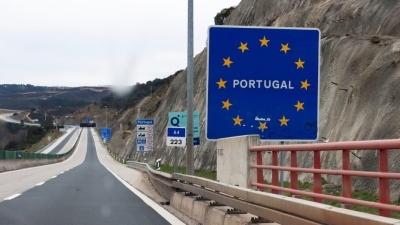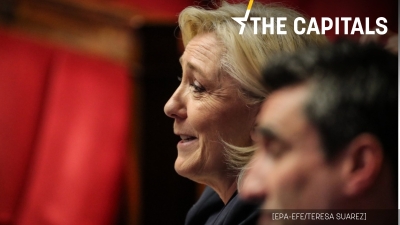Ukraine one year on: ‘Why should I leave my home, my world, my country?’
When Kharkiv woke to all-out war with Russia a year ago, many residents of Ukraine’s second city – which is just 30km from the Russian border – hunkered down at home and others rushed to evacuate, but at least two met in a park to “meditate for peace”. When Zhanna Zvereva and Nadezhda Mukhoyan spoke to The Irish Times just hours after the first blasts rolled over Kharkiv from the direction of Russia, they exuded rare calm in a city where fear and uncertainty were rising. They also had a steely certainty that their nation would triumph and ensure the rule of Russian leader Vladimir Putin ended in ignominy. [ Zelenskiy vows ‘this will be the year of our victory’ ] “What Putin is doing is terrible, but we’re not afraid and Ukraine is not afraid. This is the end for him,” said Mukhoyan. “Of course he will not go without a fight,” added Zvereva, her friend of 25 years and partner in a travel agency since 2010. “But we will win, and the world should know that.” Now the golden domes of the church beside which they sat are scarred by shrapnel, nearby pavements are pockmarked by shellfire, and many grand facades in this historic city famed for its artists and engineers are punctured and scorched, while others lie in ruins. Yet Kharkiv still stands and continues to defy Russia at close range, after a year of unprecedented violence from a neighbour that many here once regarded as a friend, which has made Zvereva and Mukhoyan prouder than ever of their city and country. [ Six ways the invasion of Ukraine changed the EU ] “We’ve been here the whole time and never thought of leaving Kharkiv. All our children are still in Ukraine and all our grandchildren too. I never felt fear or panic, I was just thinking about what to do next,” says Zvereva. “Why should I leave my home, my world, my country?” Mukhoyan asks. “They came here, not the other way around. I’m at home and so I’m the boss here, not them. No one invited them.” Hundreds of thousands of people fled Kharkiv and the surrounding region in the first months of the full-scale war, when the vibrant university city became an eerie ghost town and the greatest concentration of life was to be found in metro stations where civilians sought refuge from daily shelling. “In those first weeks we never knew when a missile would hit, and we lived under strict curfew. But some of us had dogs to exercise,” Zvereva recalls. “So in our building we arranged to all come out together for 15 minutes with our dogs. Then we got the older people to join us outside. Then we all started staying out for 30 minutes. Then we did it twice a day. And so we got to know everyone in our block and began to look after each other,” she says. [ Russia claims to have gained ground in Kharkiv as Kyiv accuses it of ‘nuclear terrorism’ ] When they were on a walk with friends and their dogs last summer, a missile screeched overhead and exploded about 300m away from Zvereva. “We all froze and the poor dog just lay down,” she recalls. “Some shrapnel landed near us and then all the glass started falling from the windows of our building. I came to my senses and said ‘Girls – home!’ and sure enough the window in the front room of our flat was gone.” Mukhoyan was told one day that a missile had landed right next to her family’s summer cottage, or dacha, outside the city. “Thankfully it didn’t explode or the whole place would have been destroyed. The windows were blown out from the impact but that was all. Sappers quickly came and took it away,” she explains. [ Zelenskiy says Ukraine ‘will prevail’ against Russia ahead of possible anniversary attacks ] Both women are full of praise for Ukrainian president Volodymyr Zelenskiy and for US counterpart Joe Biden for paying a surprise visit to Kyiv this week, but their favourite foreign politician is Boris Johnson, who as British prime minister was a frequent guest in Kyiv. “He’s like a real Ukrainian!” says Zvereva, whose son Serhiy was recently called up to the army. “We Ukrainians are open and friendly and strong. If you don’t mess with us then we’re calm, but attack us and we unite into a single powerful fist. That’s our spirit.” Mukhoyan says that, in the early days of the war, when Russian sabotage groups occasionally reached central Kharkiv before being killed or captured, she and her neighbours made Molotov cocktails to hurl at any enemy troops or tanks that came their way. “We made plenty and were ready to throw them if we had to. My hands wouldn’t have shaken for a moment,” Mukhoyan recalls. “The war has changed everyone. Maybe we’ve become harder, but that’s totally understandable. Before, I didn’t want anyone to be harmed. Now I’d wring Putin’s neck with my own hands,” Mukhoyan says. “And I’d help you,” adds Zvereva, quick as a flash.
Ukraine one year on: ‘Why should I leave my home, my world, my country?’
Six ways the invasion of Ukraine changed the EU
:quality(70)/cloudfront-eu-central-1.images.arcpublishing.com/irishtimes/2DR7N5J6EGVJHGHWND3R4Y55Z4.jpg)
War in Europe, One Year On: Irish man upholds EU’s economic weapon against Russia
:quality(70):focal(1281x525:1291x535)/cloudfront-eu-central-1.images.arcpublishing.com/irishtimes/YKGZZ6LRH5BNJMC7RGWZSEAB3I.jpg)
:quality(70)/cloudfront-eu-central-1.images.arcpublishing.com/irishtimes/KVN7THMU5JB7NO576STNH73MXQ.jpeg)
:quality(70)/cloudfront-eu-central-1.images.arcpublishing.com/irishtimes/IEQUNKCQ5BDJPBH2G6TBQ4XVXM.jpeg)
:quality(70)/cloudfront-eu-central-1.images.arcpublishing.com/irishtimes/IGSZ7NBQW7D2ZC3MT77SMRGL6Q.jpg)
:quality(70)/cloudfront-eu-central-1.images.arcpublishing.com/irishtimes/Z42EDIHYJYK4SH5JTNGRE4PLKQ.jpg)
:quality(70)/cloudfront-eu-central-1.images.arcpublishing.com/irishtimes/SYD72HLIURBJPOEA7F5OAIPQTA.jpeg)
:quality(70)/cloudfront-eu-central-1.images.arcpublishing.com/irishtimes/3JU4KJDBJ5ENZKLK5EKEIRIIEE.jpeg)



